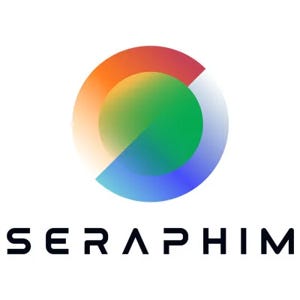Seraphim Space Investment Spotlight
Pioneering the Public Markets Approach to SpaceTech Investment
Company Portrait
In the summer of 2021, when space tourism headlines dominated the financial press and satellite constellations were capturing public imagination, a London-based investment firm quietly achieved something far more significant for the industry's long-term development. Seraphim Space became the first investment manager to launch a publicly traded vehicle dedicated exclusively to SpaceTech ventures, fundamentally changing how institutional and retail investors could access the space economy.
This milestone represented the culmination of a journey that began in 2016 when three technology investors recognized that space commerce was transitioning from government-dominated programs to venture-scalable businesses. Today, managing over £300 million (≈$400 million at current exchange rates) across multiple investment vehicles, Seraphim has positioned itself as what it describes as the world's most active SpaceTech investor, having backed more than 130 companies across the space value chain. Their approach combines traditional venture capital methodology with the transparency and liquidity of public markets, creating a hybrid model that reflects both the sector's massive capital requirements and its growing mainstream investment appeal.
The firm's distinctive philosophy centers on space-enabled applications rather than space hardware alone, recognizing that the most scalable opportunities often exist where space-generated data and services intersect with terrestrial business models. This perspective has guided them through investments spanning radio frequency analytics, orbital services, satellite communications, and Earth observation, creating a portfolio that captures value across the expanding space economy.
Firm Profile & Leadership
The Firm's Journey
The path that led to Seraphim Space's creation began not with rockets and satellites, but with a prescient recognition of technological convergence. According to QuotedData research, the firm's three general partners had collaborated since 2006 as generalist technology investors, developing expertise in evaluating early-stage ventures across various sectors. Their gradual pivot toward space investing reflected a growing conviction that improvements in manufacturing, miniaturization, and launch costs were creating unprecedented commercial opportunities beyond Earth's atmosphere.




